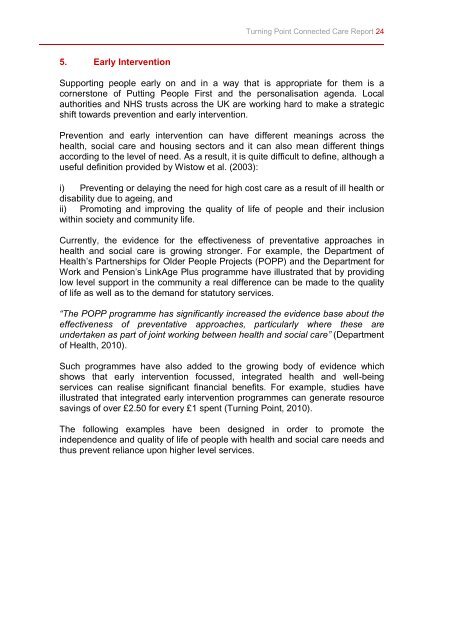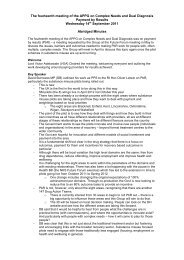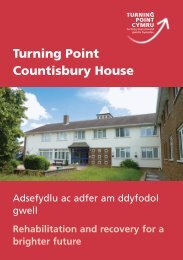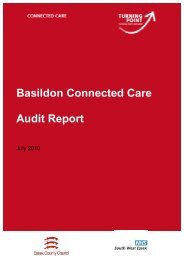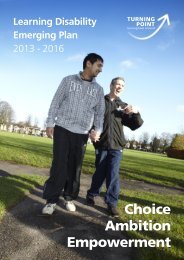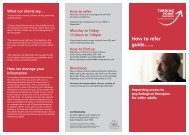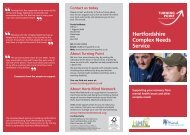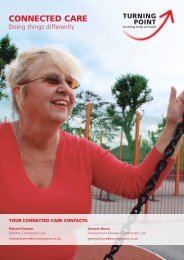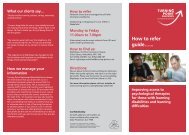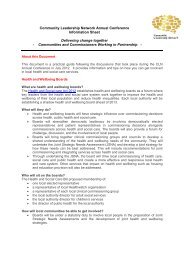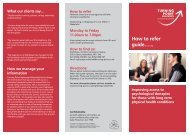Citizen Advisors - Turning Point
Citizen Advisors - Turning Point
Citizen Advisors - Turning Point
Create successful ePaper yourself
Turn your PDF publications into a flip-book with our unique Google optimized e-Paper software.
<strong>Turning</strong> <strong>Point</strong> Connected Care Report 24<br />
5. Early Intervention<br />
Supporting people early on and in a way that is appropriate for them is a<br />
cornerstone of Putting People First and the personalisation agenda. Local<br />
authorities and NHS trusts across the UK are working hard to make a strategic<br />
shift towards prevention and early intervention.<br />
Prevention and early intervention can have different meanings across the<br />
health, social care and housing sectors and it can also mean different things<br />
according to the level of need. As a result, it is quite difficult to define, although a<br />
useful definition provided by Wistow et al. (2003):<br />
i) Preventing or delaying the need for high cost care as a result of ill health or<br />
disability due to ageing, and<br />
ii) Promoting and improving the quality of life of people and their inclusion<br />
within society and community life.<br />
Currently, the evidence for the effectiveness of preventative approaches in<br />
health and social care is growing stronger. For example, the Department of<br />
Health’s Partnerships for Older People Projects (POPP) and the Department for<br />
Work and Pension’s LinkAge Plus programme have illustrated that by providing<br />
low level support in the community a real difference can be made to the quality<br />
of life as well as to the demand for statutory services.<br />
“The POPP programme has significantly increased the evidence base about the<br />
effectiveness of preventative approaches, particularly where these are<br />
undertaken as part of joint working between health and social care” (Department<br />
of Health, 2010).<br />
Such programmes have also added to the growing body of evidence which<br />
shows that early intervention focussed, integrated health and well-being<br />
services can realise significant financial benefits. For example, studies have<br />
illustrated that integrated early intervention programmes can generate resource<br />
savings of over £2.50 for every £1 spent (<strong>Turning</strong> <strong>Point</strong>, 2010).<br />
The following examples have been designed in order to promote the<br />
independence and quality of life of people with health and social care needs and<br />
thus prevent reliance upon higher level services.


